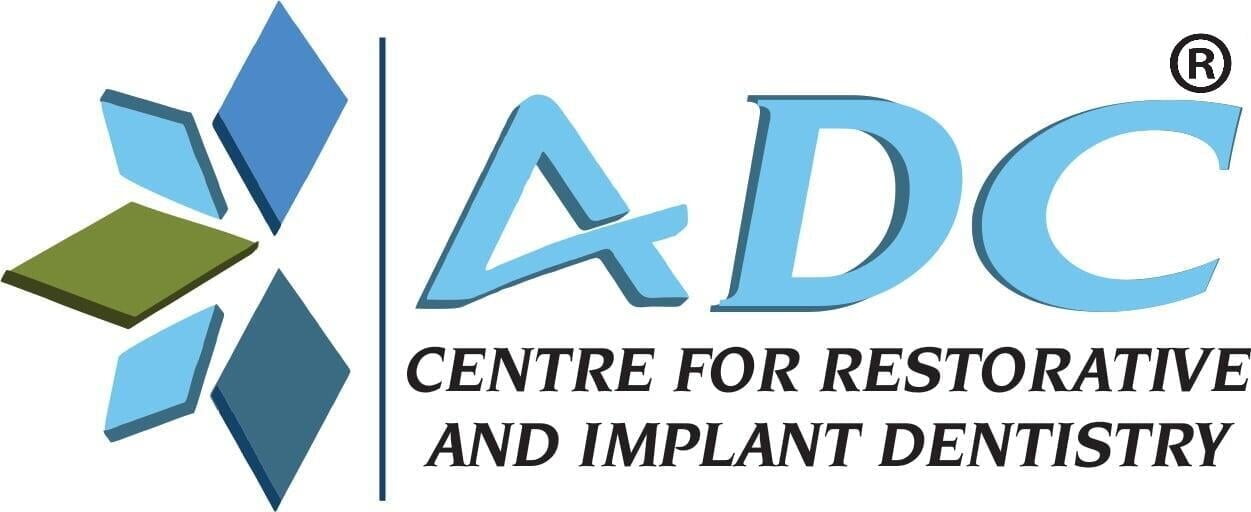A dentist visit aims to help people enjoy healthy, self-assured smiles for life, and we appreciate you starting the process. Keeping up with routine dental visits is crucial for maintaining your overall health and well-being.
Further, with proper care, permanent teeth can last a lifetime. With proper oral hygiene, a low-sugar, low-acid diet, wearing a mouthguard when participating in sports, and scheduling routine dental appointments, the risk of tooth decay, gum disease, and tooth loss can be decreased. Everyone, especially small children, should visit the dentist twice a year. Modern technology allows dental procedures to be performed with little or no discomfort.
Moreover, in a dental consultation, you can talk about your problems, worries, and possible treatments with your dentist in a non-invasive setting. Although some of our dentists might charge a nominal consultation fee to compensate for their time, most provide free consultations. A consultation is advised if you consider having any major dental work done. This is crucial for many reasons.
Dental Checkup
Your dentist should inquire about your overall health and medications when you visit for a dental examination. Various medical issues impact your dental health and vice versa.
Before receiving dental care, you may need to examine how some medications affect your mouth.
- With the help of small instruments like a mirror and probe, your dentist will examine each tooth (a fine, pick-like tool). The dentist searches for disorders like tooth decay, gum disease, and other problems.
- The mouth's soft tissues, including the tongue, cheeks, lips, and palate, are also examined for indications of oral cancer and other potential disorders. Your dentist might also examine your jaw joints and the lymph nodes in your neck.
- X-rays could be required if a suspected, dental issue is hard to see (such as probable decay between two teeth that are touching or an infection). If there is a problem, your dentist will describe the available treatments and give you an idea of the cost and turnaround time.
Before the Appointment
Before the Appointment
Plan enough time off from work or school so you won't feel pressured or stressed about returning. Ask how long cleaning and examination typically take when scheduling your appointment, and then allow more time. If it has been some time since your last appointment, you will spend more time in the dentist's chair. An afternoon appointment will allow you to leave for home immediately away.
To save money if you have dental insurance, check to verify if your dentist is part of the network before scheduling an appointment. A co-pay may be required when you visit the office, or your dentist may charge you the remaining sum after receiving payment from your insurer. Find out how much you should budget for your visit if you don't have insurance.
Arrive early so you may fill up the paperwork (or submit it if forms are accessible online in advance), and give the staff time to set you up on the day of the event. When you check in at the front desk, be prepared with your driver's license and insurance card.
What to predict at your first dentist appointment is as follows: Your Complete Consultation
What to predict at your first dentist appointment is as follows: Your Complete Consultation
You will first have a thorough exam with the dentist as a new patient.
- To ensure you are in excellent health, the dentist may take your blood pressure during this examination and talk to you about your medical history and any worries you may have.
- If you are apprehensive about your appointment, now is a perfect time to let us know. Your dentist will make every effort to make your appointment as comfortable and hassle-free as possible because your comfort is our top priority.
- Your dentist will analyze your dental x-rays and do an oral cancer screening during your examination, which involves a check of your jaw, neck, tongue, and mouth's interior. One-year screening is advised for this crucial procedure.
The purpose of this initial examination, which will last around an hour, is to allow your dental staff to see any problems like cavities or gum disease. Your dentist will create a custom treatment plan for you and review your choices based on your examination results. All Gentle Dental locations have on-staff dentists who may provide specialized dental care without a necessary referral. Specialist consultations are never charged for.
You might not receive a cleaning on your initial appointment. After the doctor confirms that cleaning is the best action for oral health, it may be carried out. If cleaning is not the initial and best line of treatment, then specific circumstances must exist. You can anticipate having your exam and cleaning/hygiene appointments at the same time moving ahead after your dental health has normalized.
Your Visit for Hygiene
Your dental hygienist will talk to you about your dental history and address any concerns with your oral hygiene routine, gum disease symptoms, or brushing and flossing skills during your appointment. You are welcome to voice any worries, sensitivities, or difficulties you may be having right now.
Complete cleaning and polishing of your teeth will come after a general examination of your mouth and gums, an oral cancer check, and a screening for the condition. Depending on your unique needs, a hygienist may manually clean your teeth with conventional equipment or utilize a cutting-edge water-powered instrument. The American Dental Association (ADA) advises fluoride treatments for adults and children, and your dental hygienist may suggest a course of action.
Finally, your hygienists will advise you to maintain good oral hygiene and avoid gum disease. After your hygiene exam, you will leave with a toothbrush, floss, and toothpaste to continue with your home health regimen, which should last around 45 minutes.
What will happen next?
What will happen next?
After discussing your treatment plan with the dentist, a patient coordinator will meet with you to make any necessary follow-up appointments, go through your payment choices, and address any inquiries regarding insurance coverage of the services you've been advised to have.
- You will be given a detailed price breakdown and coverage for each service. In addition to accepting Essential Dental, a discount dental plan that offers immediate coverage and reductions on all dental services, all Gentle Dental locations also offer financing options.
- Before you depart, remember to make your next exam and hygiene appointment. It's a terrific method to ensure your dental health is on track. You will receive email and text reminders of your upcoming appointments when you provide us with your cell phone number.
Why go to the dentist?
Why go to the dentist?
Routine visits to the dentist can spare you a lot of pain and cost. The dentist examines your mouth in all areas to ensure no abnormalities. More frequently, general illnesses like diabetes, bone and joint problems, etc., and oral malignancies, are found during routine dental checkups.
- Tooth pain: After the agony of childbirth, tooth pain is the second-worst pain a human body can endure. Typically, tooth discomfort begins when you are sleeping at night. It frequently indicates that the germs in the mouth and the cavities have gotten to the tooth's nerve and blood supply, causing pain. Other factors, such as an impacted tooth, a tooth fracture, etc., can cause dental discomfort. As a result, your oral health mantra should be to schedule an appointment with the dentist immediately.
- Jaw ache: If your jaw hurts, you experience unexplainable headaches, or one of your teeth is overly sensitive, it's time to see a dentist. Some headaches that cannot be attributed to another illness are discovered to be dental. On both sides of the head, just below the external ear, is the temporomandibular joint, which helps the lower jaw move. For early intervention and diagnosis, you should see your dentist if you experience pain when opening and closing your mouth, chewing, or performing other daily activities.
On the initial appointment, some procedures are fulfilled:
- Cleaning and polishing teeth: The dentist will advise you to get a cleaning if there is plaque buildup and debris in your mouth. Your teeth can frequently be cleaned and polished at the initial visit. A second visit is advised to get it cleaned thoroughly if the plaque and calculus have gotten below the gum line.
- Filling minor cavities: On a first visit to the dentist, small or moderate caries or decay that is present on the teeth may be filled.
- Root canal procedure starting point: The initial step of the root canal procedure starts on the first day to relieve the pain. Additionally offered is a one-day root canal if the patient chooses that option. The choice is left up to the doctor and the patient, but the day's itinerary impacts it.
Consider Your Options
Consider Your Options
There are numerous options for treating the majority of dental issues. Your financial situation, comfort level, and aesthetic preferences should determine your method. There are direct and indirect treatment alternatives accessible if you need to schedule dental restoration. The damaged area is filled in with a direct restoration to recreate the natural tooth. Several materials are available for tooth fillings. Gold, silver amalgam, porcelain, plastic, composite resin, or glass ionomer can all be used to fill cavities.
An inlay, inlay, or crown is indirectly restored by covering the broken tooth. These come in various materials, such as porcelain, composite resins, and gold. Suppose you have one or more missing teeth. In that case, you may choose dental implants or look into non-implant solutions, including removable partial dentures, a fixed bridge supported by teeth, or a resin-bonded bridge.
- Your dentist will assist you in examining all of your options throughout your consultation.
- To assist you in choosing the strategy that is most suitable for your unique circumstances, they will pose probing inquiries. After your consultation, you are not needed to schedule a procedure.
- Move on and consider other possibilities if one of our dentists doesn't provide the service you're looking for. You can simplify this process using our Find Your Dentist feature to look for treatments or services. You should receive the medical care and therapy that are most appropriate for you.
Furthermore, your initial dental visit is mostly intended to acclimate you to a new dental office and its surroundings. If it is determined that your teeth are not in good health, the dentist will work with you to enhance your oral health and restore your smile by recommending dental procedures. The appointment will only take a short time if your examination goes well and there are no big issues.
Conclusion
For some people, picking up the phone and making a dentist appointment can be daunting and downright terrifying. But take into account all the benefits of regular dental exams and how skipping too many could harm your smile and way of life. A dental consultation helps you understand the process and what lies ahead.
Therefore, your dentist will immediately inform you if something unexpected is found during your dental exam. They might advise different treatments or make a specialist referral for you. A dentist might recommend an orthodontist specializing in that type of dentistry if you want your teeth straightened.














